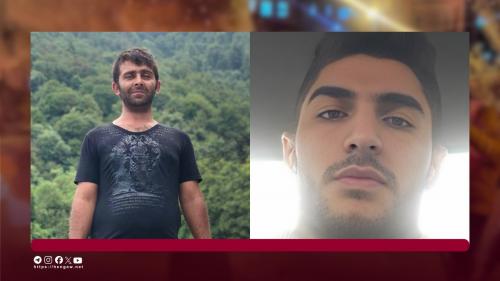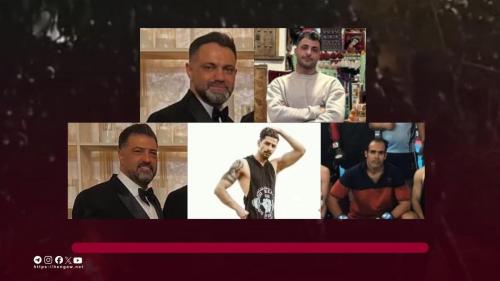28 June 2002 :
Human life is sacred and inviolable. Its suppression is always a crime for anyone who commits it. A guilty man can be justly punished without breaking the rules that safeguard man´s dignity and mankind´s respect for Creation.
The death penalty is not justice´s supreme triumph but its supreme defeat. It is never true that the end justifies the means; on the contrary, the opposite is true: the end is prefigured and compromised by the means employed to achieve it. If the means is violent, the result can be nothing but violent and can only cause further violence. Not only does the death sentence represent the loss of our sense of humanity but also of a civilised way of life.
"He who has killed must be killed in turn" say its supporters, wanting to do justice in what can only be a primitive, primordial way. I do not believe in "doing justice", I believe in searching for and achieving justice.
I would always wish to give someone who has done wrong the opportunity for a rebirth and to his punishment the force of redemption. Justice, as applied by man, without grace or mercy, is a literally ruthless, mutilated kind of justice.
The man who is paying for his crime is different from the man who has committed the crime, not extraneous but different. For justice to be equitable, it must be able to perceive this difference. A state which decides to execute a person - after one, ten or twenty years - is in reality killing an innocent human being or one who can become thus in the course of the expiation of his crime, if given time.
A death sentence is a sentence that puts an end to time - the condemned person is trapped in the past, having no future ahead. It is the brand of infamy, that indelibly labels a person forever, saying: you will never change! The death penalty fossilizes a human being in the criminal act he has committed. It is the myth of Sodom but with no alternative: condemned to death, condemned to turning back, to gazing at the horror left behind and remaining forever a statue of salt.
Human justice must be able to perceive the innocence that is conquered through time, the innocence of becoming - day after day in the course of penance - a person different to the one who committed the crime, having gained an innocence which is, perhaps, more authentic because constantly renewed. And if killing an innocent man is a crime against the law, to kill a man who has become innocent in the course of his punishment is, in my opinion, a crime against humanity.
Often, it is debated that the death penalty cannot be abolished because public opinion is against. I believe that were this a well-founded idea and had all humankind adopted it, there would have been very few break-throughs on the human rights front. My thoughts, first of all, go to John Fitzgerald Kennedy´s and Martin Luther King´s America. If politics, parliaments, governments and intellectuals were not always a step ahead of public opinion (and this is especially true where freedom and civil rights are concerned), they would be abdicating their role as leaders and accepting to be reduced to dogmatic and neutral notaries of popular whims.
I feel that the battle against the death penalty will not be definitely won until the international community pens a text against the death penalty - a text that must have the same historical importance and symbolic appeal of the Universal Declaration of Human Rights - and in it states something similar to what it wrote on crimes against humanity, like slavery and torture. A text in which a new human right must be recognized: the right not to be executed, in the name of the law and by the hand of a state.
Important steps have been taken in this direction in recent years, especially thanks to the approval for six consecutive years on the part of the UN Commission on Human Rights of a resolution that affirms the principle that "the abolition of the death penalty contributes to the enhancement of human dignity and to the progress of human rights".
We must continue along this course and reinforce the battle waged by Hands Off Cain, who managed, thanks to the support first of the Italian government and then that of the European Union, to get the United Nations to discuss the death penalty issue and consider a moratorium on executions as a solution. I like the idea of a moratorium because it doesn´t break the world in half: the "good guys" on the one side and the "bad guys" on the other. Choosing the moratorium means looking for a point of contact with those who have a conflicting stand on the death penalty and a different concept of justice. It means choosing a strategy that can help us win such an important battle.
I am proud that this battle has Italy as its starting point, because it represents the transposition onto the international sphere of the juridical principles safeguarding individual liberties, upheld for the very first time by an important Italian jurist, Cesare Beccaria.
Beccaria, writing on the death penalty in his "On Crimes and Punishments", used words that, in my opinion, sum up the whole issue: "The useless profusion of punishments, which have never made men better induces me to inquire, whether the punishment of death be really just or useful in a well-governed state? What right, I ask, have men to cut the throats of their fellow-creatures?… Is it not absurd, that the laws, which detest and punish homicide, should, in order to prevent murder, publicly commit murder themselves?… But the punishment of death is not authorised by any right; for I have demonstrated that no such right exists. It is therefore a war of a whole nation against a citizen whose destruction they consider as necessary or useful to the general good. But if I can further demonstrate that it is neither necessary or useful, I shall have gained the cause of humanity."
I am aware of being an especially fortunate man considering everything that fate has decided to bestow upon me. Among these joys there is surely the satisfaction of being the captain of the Nazionale Italiana Cantanti [Italian Singers´ National Football Team], that for more than twenty years now, has been working with dedication so that those who are weaker and suffering, particularly children, have an ally ready to wage the battles necessary so they can live in a world of equal rights, where everyone is a citizen and human rights are truly universal, not a mere luxury for a select part of mankind.
The fact that the Nazionale Italiana Cantanti, formed by famous names in the Italian music scene committed to solidarity projects, has embraced Hands Off Cain´s campaign for a moratorium on executions, flatters me greatly. We, perhaps, will be able to communicate to hearts and minds the abolitionist message that the mere words of politicians and experts in the field are not always able to get across.
Running around a football field during a soccer match and seeing the public having fun fills my heart with joy. However, if for only a fleeting moment, I stop and think that there are countries where men and women are executed in football stadiums, sometimes even without a trial, my conscience cries out to the wind, willing the scent of the sea to sweep over our planet and wipe away the stench of shame from us, guilty of life´s annihilation.








